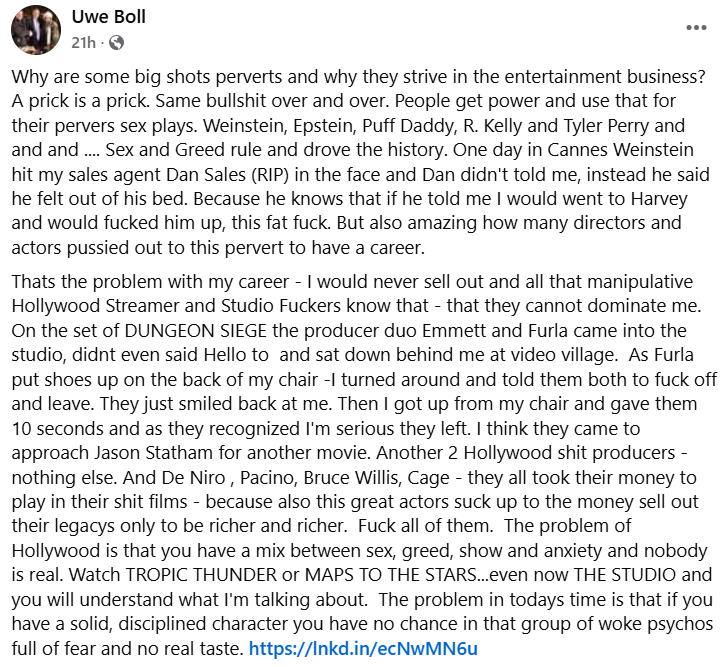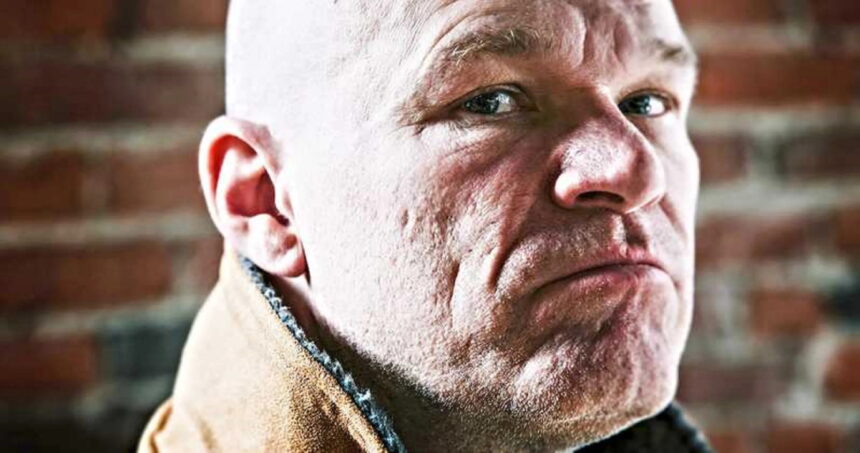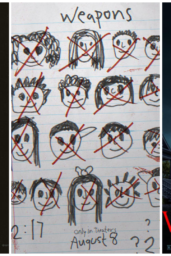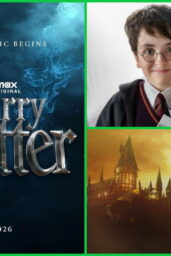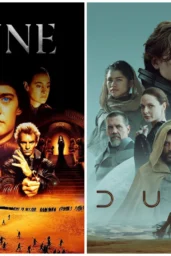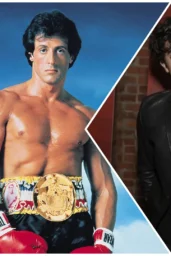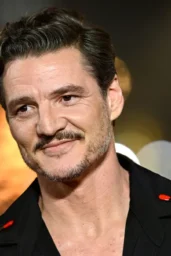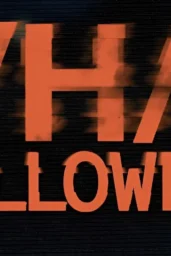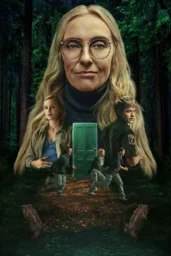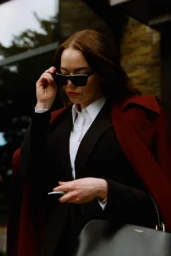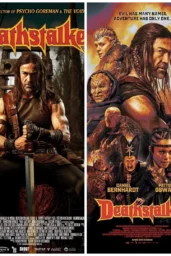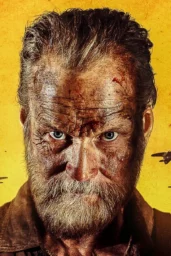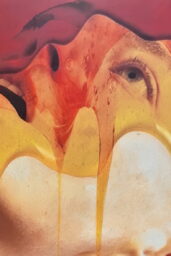The first time I saw House of the Dead (2003), I thought it might be a joke. Then I realized Uwe Boll was serious. Two decades later, the German director is still raging against Hollywood—only now, the industry has stopped laughing with him, if it ever did. His latest Facebook rant, a punctuation-free explosion of grievances, is equal parts entertaining and exhausting. It's also quintessential Boll: unfiltered, self-righteous, and utterly divorced from self-awareness.
Boll's screed hinges on two claims: that Hollywood never accepted him because he “would never sell out,” and that the industry is now overrun by “woke psychos” with “no real taste.” He recounts an anecdote from the set of In the Name of the King: A Dungeon Siege Tale (2007), where producers Randall Emmett and George Furla allegedly put their shoes on his chair. Boll's response? Telling them to “fuck off and leave.” They smiled. He counted to ten. They left. It's a story that feels apocryphal—or at least embellished—but in Boll's world, every slight is a battle scar, every critic a philistine.
Then comes the real vitriol. He lambasts De Niro, Pacino, Willis, and Cage for “selling out” to Emmett/Furla productions, as if their late-career paycheck roles somehow invalidate The Godfather or Pulp Fiction. “Fuck all of them,” he declares, before diagnosing Hollywood's “problem” as a cocktail of “sex, greed, show, and anxiety.” It's a diagnosis that might carry weight if it came from, say, Paul Schrader. But from Boll? The man whose Alone in the Dark (2005) sits proudly on IMDb's “Bottom 100”? It's hard not to chuckle.
To his credit, Boll namechecks three films he admires for their self-awareness: Tropic Thunder (2008), Maps to the Stars (2014), and The Studio (2005). It's a bizarre list—Tropic Thunder is a satire, the other two are acid-laced industry critiques—but it's telling that Boll sees himself in their lineage. He fancies himself a truth-teller, a maverick. The reality? He's the guy who once called Harry Knowles a “retard” and declared himself “the only genius in the whole fucking movie business.” Even his Holocaust film, Auschwitz (2011), was less a reckoning with history than a vehicle for his ego. (“My masterpiece,” he called it.)
Boll retired in 2016 to run restaurants, but like a bad penny, he's back. His greatest performance now isn't behind the camera but in these unhinged social media tirades—and, oddly enough, in Radu Jude's Don't Expect Too Much from the End of the World (2023), where he plays a version of himself. It's a fitting coda: Boll as self-parody, a caricature of the angry outsider.
The question isn't whether Boll has a point about Hollywood's excesses—he does, albeit clumsily. It's whether anyone should care. The industry has moved on. Boll hasn't. His rants are less critiques than therapy sessions, a man screaming into the void because the void stopped screaming back.
